Ray Hahn
Oh Girls Just Wanna Have Fun
This story begins in the living room of my boyhood home on Oak Street. It’s about the first two pieces of music I heard on different radios more than 32 years apart. Just a few years after the introduction of 33 1/3 vinyl records (1948), my dad purchased a Stromberg-Carlson console radio and stereo-system. It was delivered late on a Friday afternoon, and as best as I can remember, Dad just stood in front of it and smiled. He didn’t turn it on nor did he examine the components, he just stood there and smiled. The smile was dripping with pride of ownership. In January 1920 a man named Lee de Forest who called himself the “father of radio,” managed to build an antenna on the roof of the Metropolitan Opera House in New York City for the purpose of broadcasting live opera performances to area residents. There were those who lived in Newark, New Jersey who claimed to have heard Puccini’s Tosca that winter day. Two decades later the radio industry reached the realization that opera was a viable and profitable entertainment medium. It was Christmas day 1931 when the Met launched the first season of broadcasts with Milton Cross hosting Engelbert Humperdinck’s Hänsel und Gretel – an opus the composer called a fairy-tale opera. In the years that followed, Cross hosted over 800 performances. The next day was Saturday and it was time to test the new radio. The first voice heard from the newly designed CO-AXIAL 12″ radio speakers was Milton Cross introducing the Texico Opera Theatre. Texico had sponsored the weekly broadcasts since December 1940.) Since I was a curious kid, I sat on the sofa next to my dad and listened – for over three hours. It took years but looking back on that day it was probably my very first holistic experience – when I learned how so many people and things work together as parts of a whole – composers, music, publishers, conductors, musicians, singers, property managers, set designers, stage craftsmen, ushers, audiences, even mail carriers, groundskeepers, and taxi drivers. The broadcast that day was Giuseppe Verdi’s Aida. Although others have suggested otherwise, Aida remains my favorite opera, even if friends consider it pedestrian. Cynthia “Cindy” Ann Lauper was born in New York City in 1953. She will celebrate her 70th birthday this month on June 22. Except for the fact that Ms. Lauper’s mother was of Italian descent, she has nothing in common with Giuseppe Verdi. Even so, being music-minded people who lived more than fifty years apart, it is music for which they are remembered and known. One of Cindy Lauper’s most popular hit songs came in 1983. Written by Robert Hazard, Girls Just Want to Have Fun was written for a male voice, but Lauper changed a few lyrics and with her edits, the point of view became female. MTV’s four-minute music-video that highlighted girls dancing, singing, and carousing with boys, featured Ms. Lauper as “the girl” and the 1980s pop-culture icon, Lou Albano, as her father. Girls peaked on March 10, 1984, but has become a true cult favorite. The first time I heard the song was a night in 1983 when a Philadelphia radio station changed its program format from Classical to Rock ‘n Roll. Aida and Girls Just Wanna Have Fun, what do these two tales have in common? Nothing! Except if any or all of it happened in that fifty-year period between Verdi’s death and Cindy Lauper’s birth it would have been found on postcards. Perhaps even the ones shown here.Girls Just Want to Have Fun
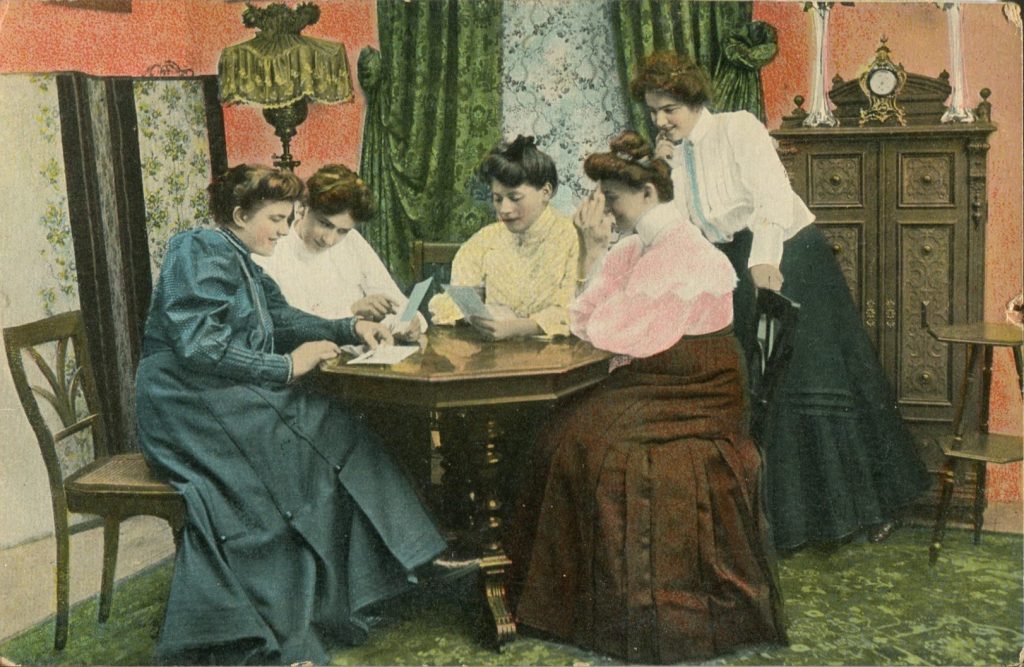
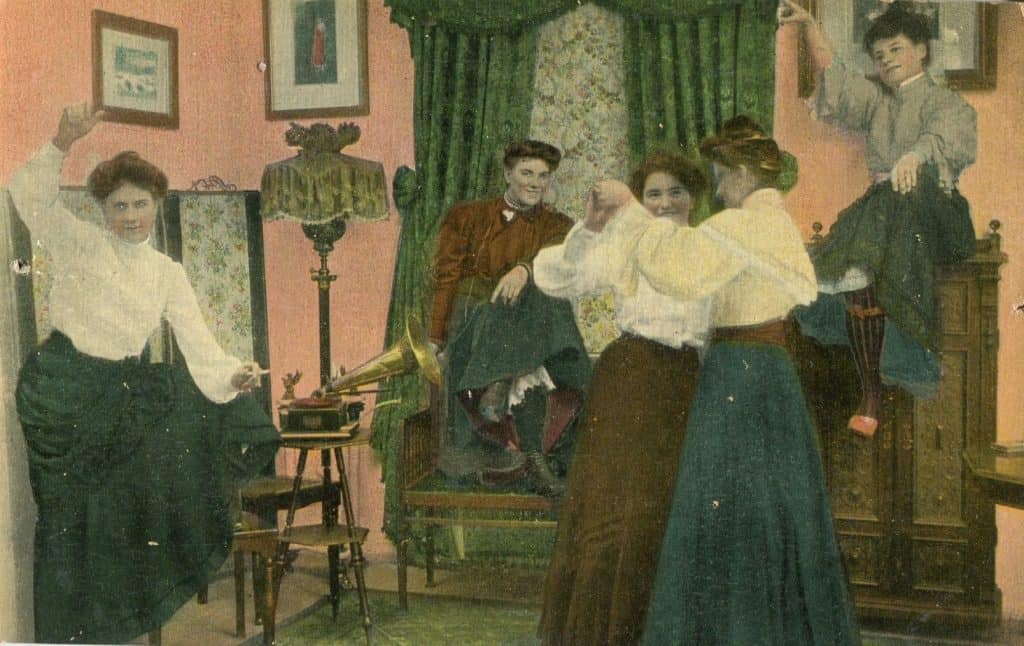
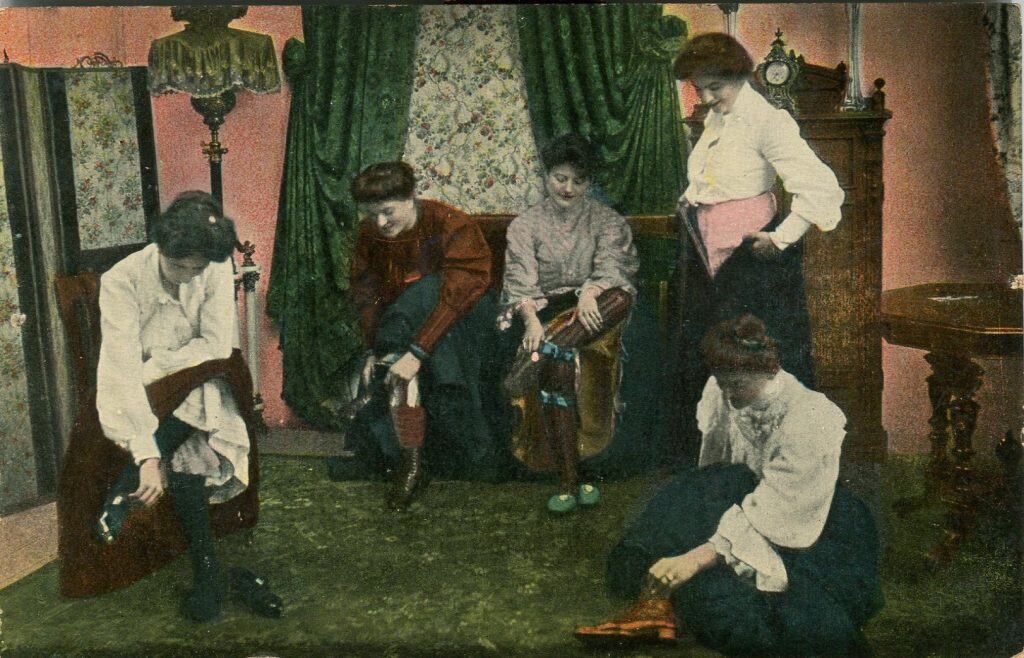
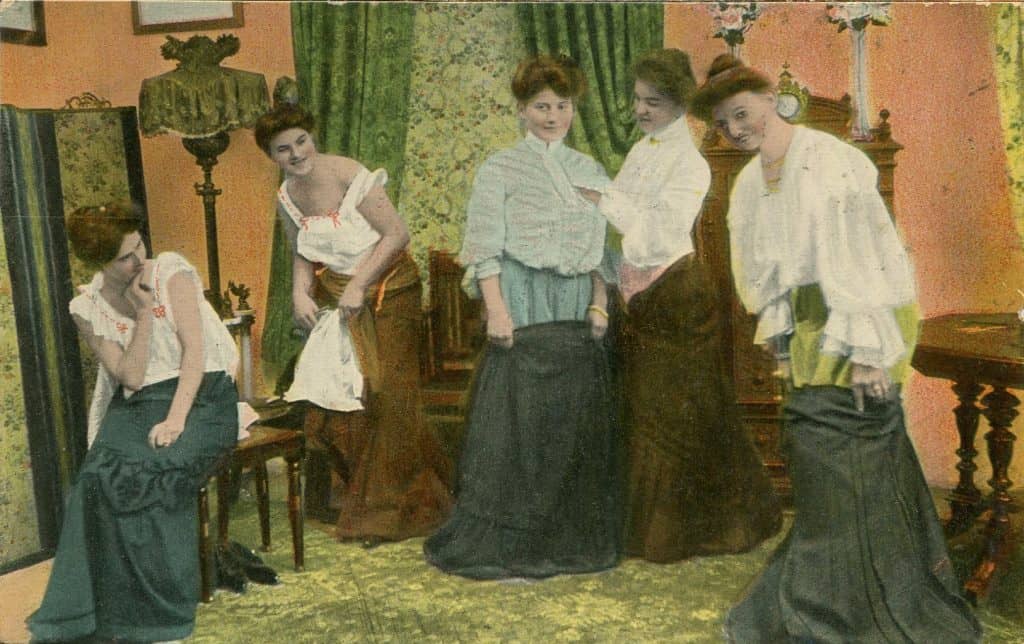
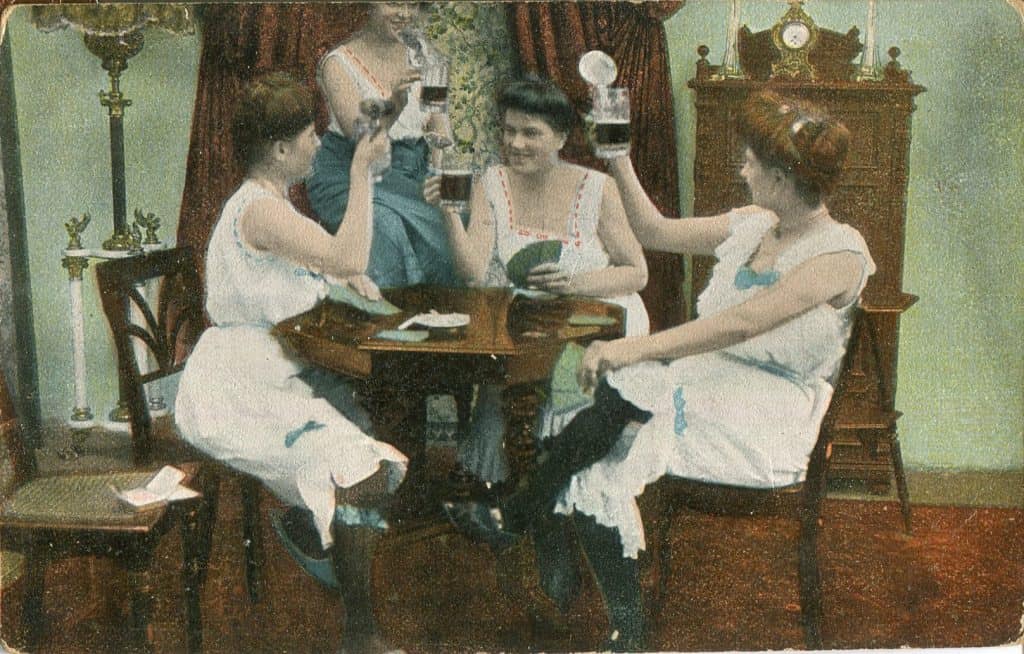
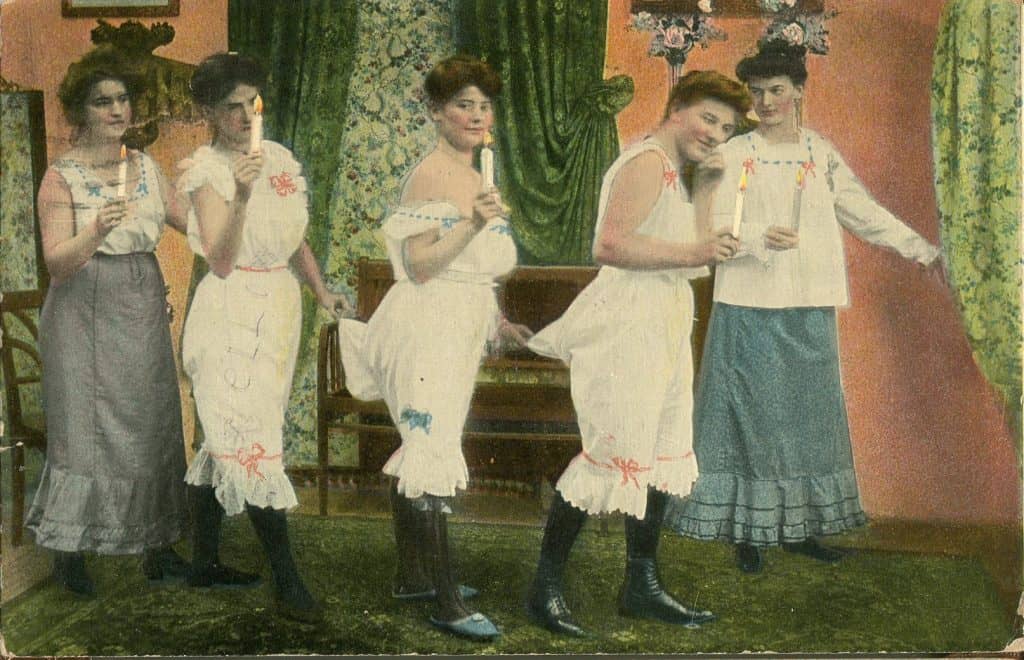
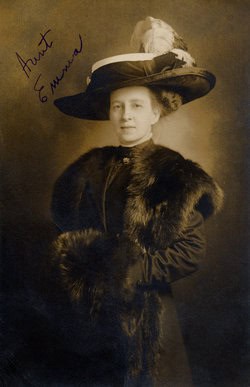
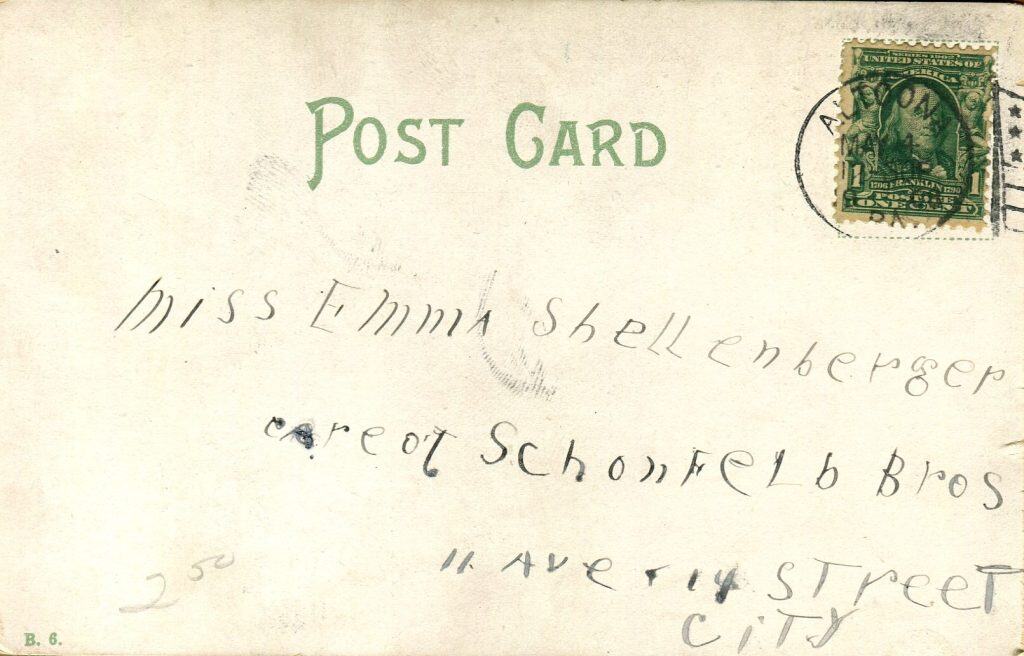
All six cards in this set were mailed to Miss Emma Shellenberger in Altoona, Pennsylvania, circa 1908.
Apparently everyone called her Aunt Emma. In the only photo available she appears to be a full-fledged member of the Fashion Set. She was born in Altoona in 1887, the last of six children born to David and Frances Shellenberger. Emma was a lifelong resident. The 1910 Federal Census enumerated her as a young woman employed as a salesclerk in the lady’s department of a local department store.
After work in the department store, perhaps Emma was just a girl who wanted to have fun!
Brilliant article. Just fun to read and the cards are perfect.
My maternal grandfather listened to the Metropolitan Opera broadcasts for years, so he was likely tuned in on that Saturday in 1948 when Aida was featured.